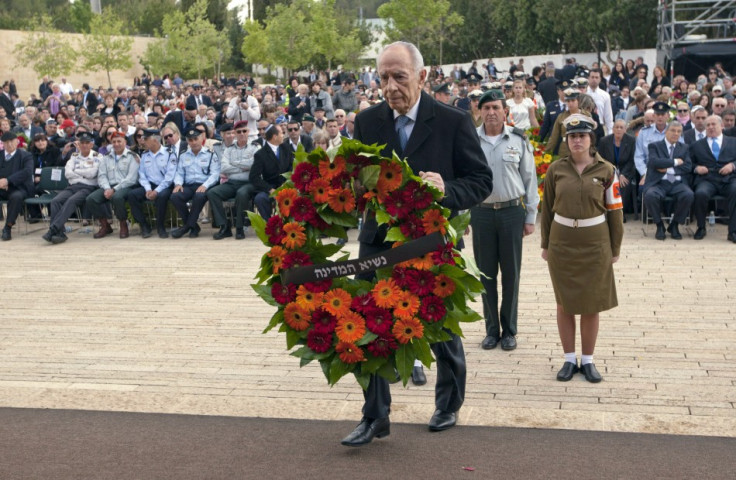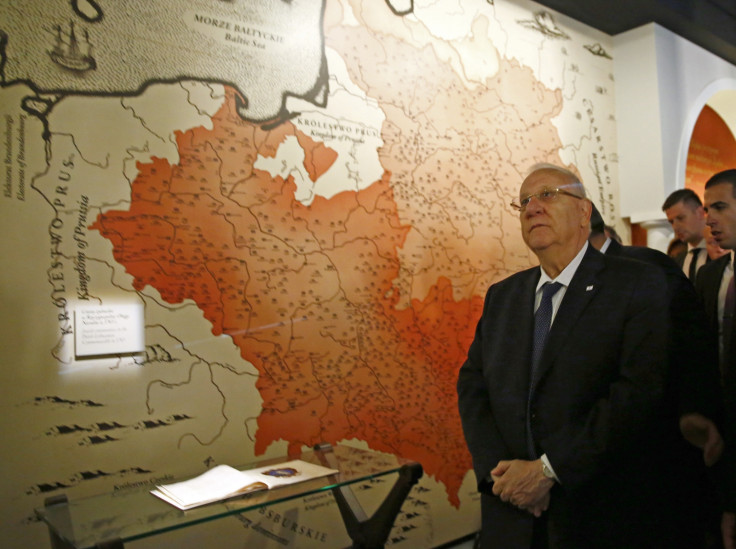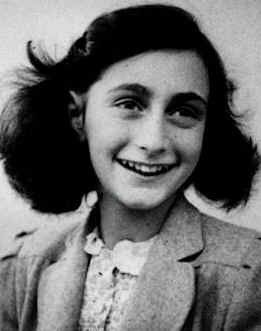Holocaust Memorial Day 2016: 18 moving quotes of remembrance to the victims of the genocide

Holocaust Memorial Day on January 27 commemorates the millions of innocent victims of the Nazis' extermination campaign that took place in the years up to, and during World War II. Six million Jews, around 66 per cent of all Jews living in Europe at the time, were murdered along with socialists, other dissidents, Roma gipsies, Slavs, people with disabilities and gay people.
The solemn occasion is marked with activities in schools, youth clubs and places of worship each year in the UK and this year's theme is "Don't stand by", a message that should be remembered for all future generations.
In Israel, the victims of the genocide are remembered with Yom HaShoah, beginning on Wednesday, May 4 and ending on the evening of Thursday, May 5, established by the Israeli parliament in 1951 to coincide with the liberation of concentration camps in Western Europe and the anniversary of the Warsaw Ghetto Uprising, the largest Jewish-led revolt against the Nazis during the war.
Teaching future generations about the atrocities is as important as ever as several other genocides, in Rwanda, Darfur, Bosnia and Cambodia have all taken place since the end of WWII. Here are 18 quotes by survivors, writers and leaders to commemorate the victims of the Holocaust.
1) "To forget the dead would be akin to killing them a second time," Elie Wiesel. Wiesel was a Holocaust survivor who wrote the book "Night," about his time in Auschwitz and Buchenwald from 1944–1945.
2) "I swore never to be silent whenever and wherever human beings endure suffering and humiliation. We must take sides. Neutrality helps the oppressor, never the victim. Silence encourages the tormentor, never the tormented." Elie Wiesel - from his speech when given the Nobel Peace Prize.
3) "The duty of the survivor is to bear testimony to what happened ... You have to warn people that these things can happen, that evil can be unleashed. Race hatred, violence, idolatries -- they still flourish." Also Elie Wiesel from The Watchtower, 1995.
4) "First they came for the socialists, and I did not speak out--because I was not a socialist. Then they came for the trade unionists, and I did not speak out--because I was not a trade unionist. Then they came for the Jews, and I did not speak out--because I was not a Jew. Then they came for me--and there was no one left to speak for me." Written by Martin Niemöller, a German theologian and Lutheran pastor on January 6, 1946. He was initially a supporter of Hitler, but became an anti-Nazi activist and was imprisoned in Sachsenhausen and Dachau concentration camps from 1937 to 1945.

5) "Six million of our people live on in our hearts. We are their eyes that remember. We are their voice that cries out. The dreadful scenes flow from their dead eyes to our open ones. And those scenes will be remembered exactly as they happened." Shimon Peres, the former President and two-time Prime Minister of Israel.
6) "Escape was not our goal since it was so unrealistic. What we wanted was to survive, to live long enough to tell the world what had happened in Buchenwald." Jack Werber a Holocaust survivor that helped save more than 700 children from certain death at the Buchenwald slave labour camp in the last months of WWII.
7) "We will not be led like sheep to the slaughter." Written by poet Abba Kovner from Lithuania, he became famous for these words from essays from the Holocaust era.
8) "Fiction cannot recite the numbing numbers, but it can be that witness, that memory. A storyteller can attempt to tell the human tale, can make a galaxy out of the chaos, can point to the fact that some people survived even as most people died. And can remind us that the swallows still sing around the smokestacks." American writer Jane Yolen writer of The Devil's Arithmetic, a Holocaust novella.
9) "Thou shalt not be a victim, thou shalt not be a perpetrator, but, above all, thou shalt not be a bystander." Yehuda Bauer, an Israeli historian and scholar of the Holocaust, quoted in "The Legacy of the Holocaust."
10) "I will never be able to go back to Stockholm, without knowing inside myself that I'd done all a man could possibly to do save as many Jews as possible." This was said by Swedish diplomat Raoul Wallenberg who rescued 100,000 Jews in Nazi-occupied Hungary.

11) "Nations cannot be saved and must not be saved as an afterthought or from considerations of cost-benefit. Unless the moral fire burns within us, the lessons of the Holocaust will never be learned." Reuven Rivlin, 10<sup>th President of Israel.
12) "My number is 174517; we have been baptized, we will carry the tattoo on our left arm until we die." Primo Levi, taken from the book "Survival in Auschwitz."
13) "Even in this place one can survive, and therefore one must want to survive, to tell the story, to bear witness; and that to survive we must force ourselves to save at least the skeleton, the scaffolding, the form of civilization. We are slaves, deprived of every right, exposed to every insult, condemned to certain death, but we still possess one power, and we must defend it with all our strength for it is the last — the power to refuse our consent." Said the Turin-born Levi also in "Survival in Auschwitz.

14) "For evil to flourish, it only requires good men to do nothing." This phrase has been credited to Simon Wiesenthal a Holocaust survivor who turned Nazi hunter after the war.
15) "Survival is a privilege which entails obligations. I am forever asking myself what I can do for those who have not survived." Also said by Wiesenthal.
16) "I had to help them. There was no choice." Oskar Schindler, explained his actions in saving almost 1,200 Jews during the Holocaust.
17) "I don't want to have lived in vain like most people. I want to be useful or bring enjoyment to all people, even those I've never met. I want to go on living even after my death!" Said Anne Frank in her famous diaries which were published after the war ended.
18) "Despite everything, I believe people are really good at heart." Another exert from the diary of Anne Frank.
© Copyright IBTimes 2025. All rights reserved.






















